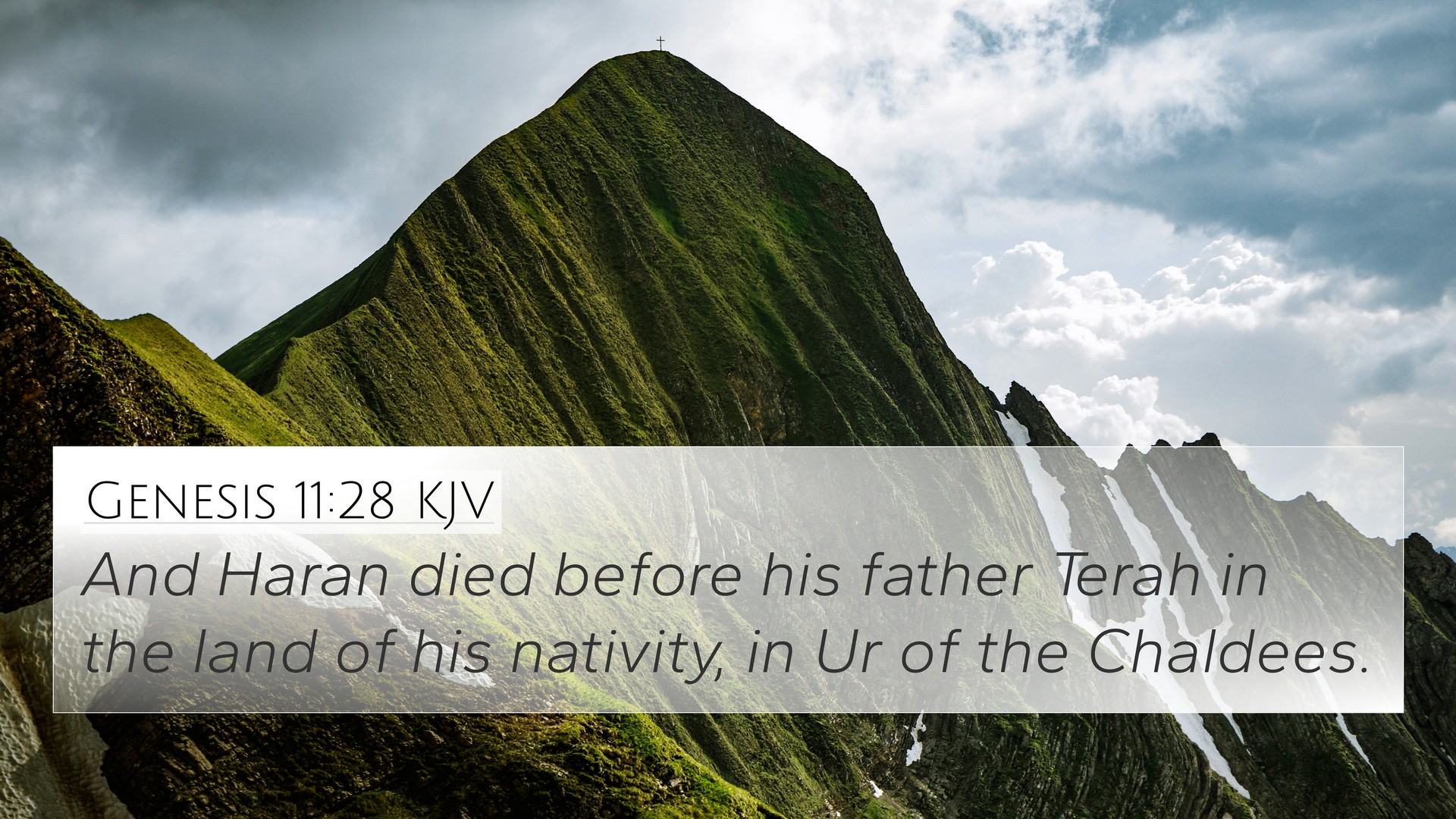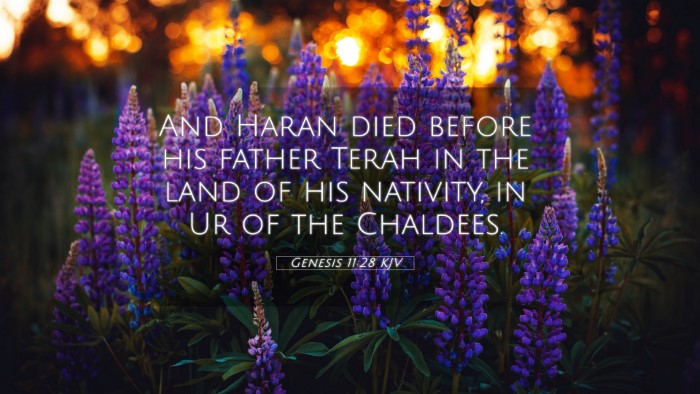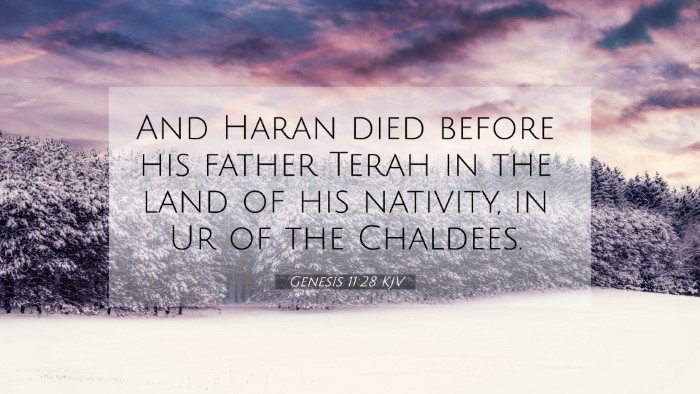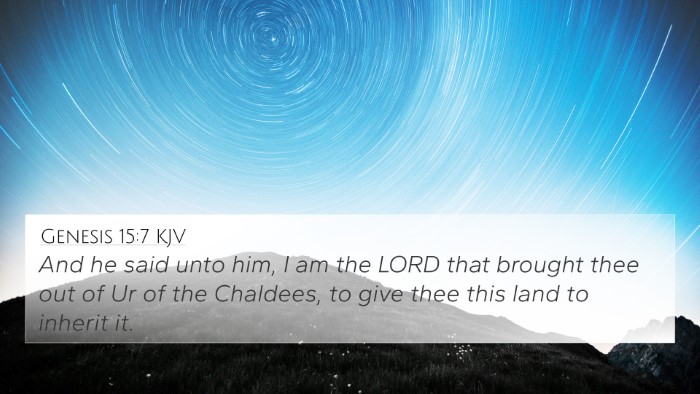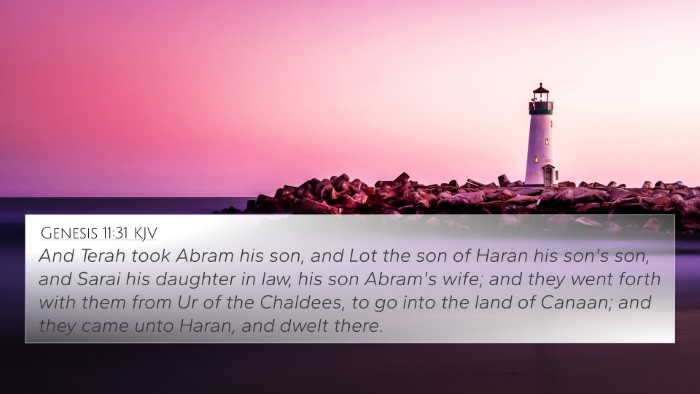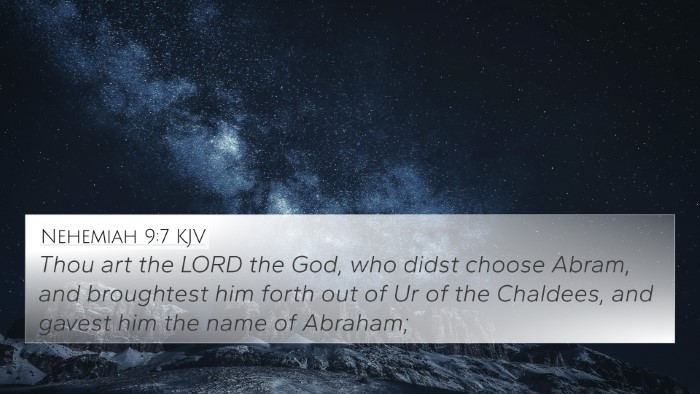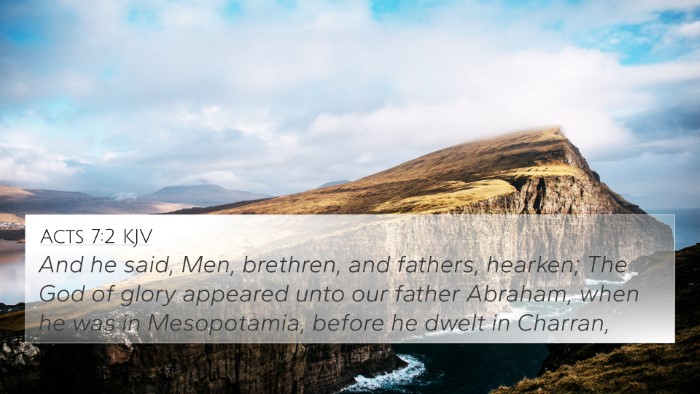Understanding Genesis 11:28
Genesis 11:28 states:
"And Haran died before his father Terach in the land of his nativity, in Ur of the Chaldees."
This verse marks a significant moment in the genealogical accounts of the Bible, shedding light on the family dynamics and geographical context of early patriarchs. The death of Haran, Terach's son, is pivotal as it sets the stage for Abram's (later Abraham) calling and the consequent narrative of God's covenant with him.
Verse Meaning and Insights
The meanings and interpretations of this verse can be drawn from several public domain commentaries.
- Matthew Henry:
Henry emphasizes the mortality that is a part of human life, stating the tragic nature of Haran's premature death, which might have caused distress within the family. He points out that such familial adversity can serve as a backdrop for Divine calls, highlighting God's sovereign plan amid human sorrow.
- Albert Barnes:
Barnes discusses the importance of Ur of the Chaldees as the birthplace of Abram and its significance in biblical history. He notes that this ancient city was a hub of civilization, and the departure from there indicates a significant shift in divine governance and human destiny.
- Adam Clarke:
Clarke notes the cultural and religious implications of Haran's death and the possible influences it had on Terach's later decisions, especially regarding idolatry and the worship practices that pervaded Ur.
Cross-References and Thematic Connections
Genesis 11:28 has several important cross-references that provide deeper insights into the narratives of the Bible:
- Genesis 12:1-3: God's call to Abram after the death of Haran, signifying a new beginning.
- Genesis 11:29-30: The introduction of Sarai (later Sarah), marking an important moment in the lineage leading to the Promised Land.
- Genesis 18:19: God’s chosen family through Abraham is set against the backdrop of familial relations starting from Terach.
- Acts 7:2-4: Stephen references the calling of Abraham from Ur, linking to the historical and spiritual significance.
- Hebrews 11:8: Emphasizes faith in leaving Ur, showcasing the obedience initiated from the loss of Haran.
- Isaiah 41:9: God's proclamation regarding Israel as unique children, linking back to Abraham.
- Romans 4:1-3: Discusses Abraham’s faith, which traces back to his origins in Ur.
Implications for Contemporary Understanding
This verse serves not merely as a historical note but as a pivotal moment in understanding faith, loss, and the calling that can arise amidst personal tragedy. The link between Haran's death and Abram's subsequent journey underscores a profound theological paradigm: often, divine calling emerges out of disruption and loss. The thematic connections reveal how personal adversity can entwine with divine purpose, offering comfort and understanding to contemporary believers facing their own tribulations.
Tools for Bible Cross-Referencing
For those looking to delve deeper into the connections presented within the Scripture and understand how various verses like Genesis 11:28 relate to broader themes in the Bible, several tools can be useful:
- Bible Concordance: A comprehensive index to find specific verses and their occurrences.
- Bible Cross-Reference Guide: Helps identify thematic relationships between scripture.
- Cross-reference Bible Study Methods: Structured approaches to exploring scripture in interconnected ways.
Conclusion
Genesis 11:28, while seemingly a simple genealogical statement, opens pathways for rich theological exploration through its connections, and points to broader themes of faith and the unfolding divine narrative. By understanding and employing methods of cross-referencing, readers can deepen their Bible studies, discovering the intricate links that bind the scripture together in a cohesive narrative.
